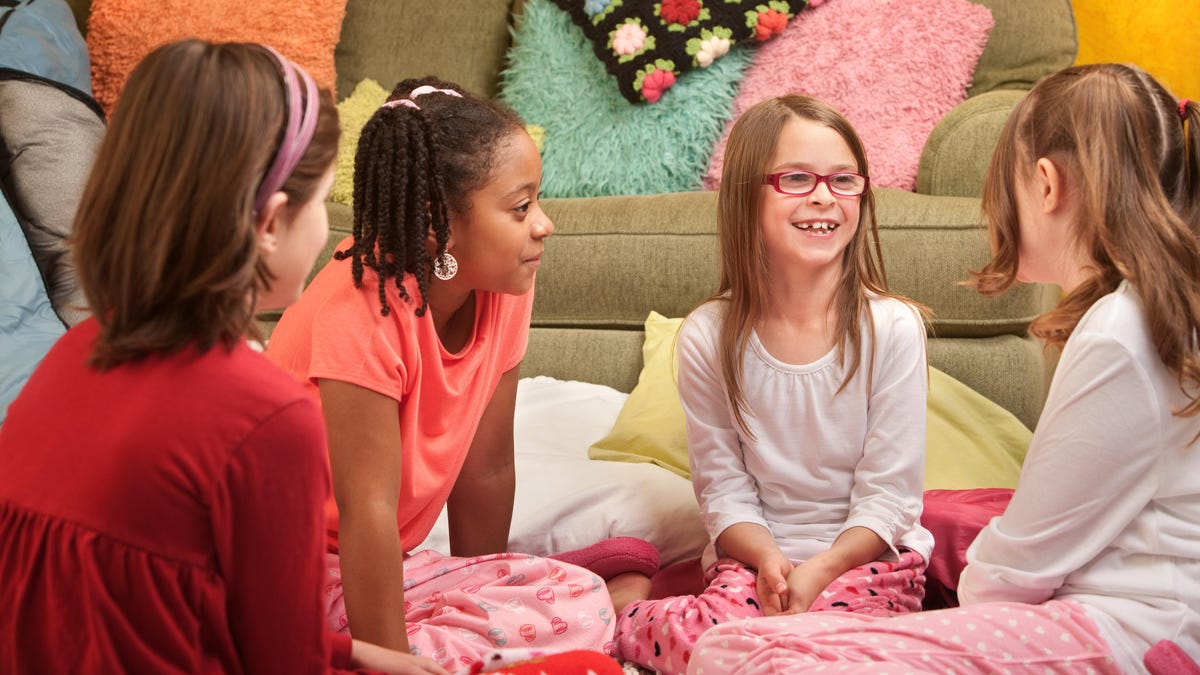Are the Sleepovers Finally Over?

By the third grade (around the early 1980s) I was regularly sleeping with friends. Late night birthday parties were commonplace, as were the occasional Friday night watching videotapes in dark dens until our eyes burned. At a friend’s house, we put on Wham! songs, and other times I soaked up MTV like a sponge because we didn’t have cable at home.
I figured that when my own kids were in second or third grade, we would start making decisions about whether they were ready for sleepovers. I did not expect that overnight stays practically ceased to be something special. I also did not expect that I hardly know my children’s friends or their parents. You see, I grew up in the same small town that my parents grew up in. Everyone knew each other, and my first sleepovers were with neighbors or the children of people my parents had known all their lives.
Now we call everyone “friends,” even though almost all of them are practically strangers, and fear of the unknown keeps many parents from indulging in sleepovers. In a recent internet and media debate about sleepovers, parents have expressed great misgivings about letting their kids sleep at a friend’s house:
- To what extent will they be under adult supervision?
- Are there weapons in the house?
- Is the family vaccinated against COVID?
- Are alcohol and drugs safe enough?
- Will other parents take my child’s allergies/health seriously?
- Will children have internet access?
- What other brothers and sisters, friends, and adults will be in the house, and do I know them?
- How do I know my child will be safe from abuse?
- Who are these people anyway?
Apart from these major issues, sleepovers can be a pain in the ass. They may call you at midnight to pick up your child because they are too sleepy, or they come home angry because they have not slept all night. If you are hosting a sleepover, you need to plan complex events. And then you can’t sleep, because it’s not so little to have an extra minor in care for the night.
But what about the benefits? As a child, it was exciting to be in an unfamiliar house, to see how other families work. To watch MTV and Rambo before I really matured. Children really need exposure to other lifestyles and other social norms in order to contextualize their own experiences in society. If we don’t let them sleep over with friends, what are they missing out on?
In my 1990s teenage years, sleepovers were a time when we made our big plans, extended our adventures past curfew, and experimented with independence before we were really left unattended. Do teenagers need these small steps towards independence? Or is the sleepover a relic of Gen X nostalgia while our kids have moved on to other (online) ways to build friendships and independence?
There are alternatives to the traditional sleepover where young children can get some freedom and novelty without too much risk:
- Allowing overnight stays with trusted family members or family friends.
- “Lack of sleep” (or half sleep or late sleep): Allowing your child to play late at a friend’s house but return home before bed.
- Have them go on day trips with friends and their families where you can be present and get to know everyone better.
- Go camping with other families, which gives the kids the opportunity to sleep over, but all parents are present for supervision.
So far, my girls really like to be at home and do not ask for an overnight stay. Or they are content to “sleep” in each other’s rooms until they really get tired and migrate back to their beds. I wonder if their lack of interest is a sign of a cultural departure from this teenage custom that seemed to be an indispensable part of my childhood. The debate is moot because kids don’t even care about sleepovers like we do?
We’d love to hear your thoughts on how you make sleepover decisions as a parent. Do you have your own rules about when you allow overnight stays, or good reasons to ban them all together? Are you as surprised as I am that this didn’t even come up? Let us know about it in the comments.